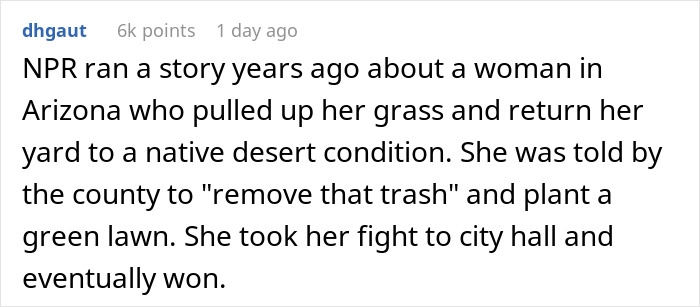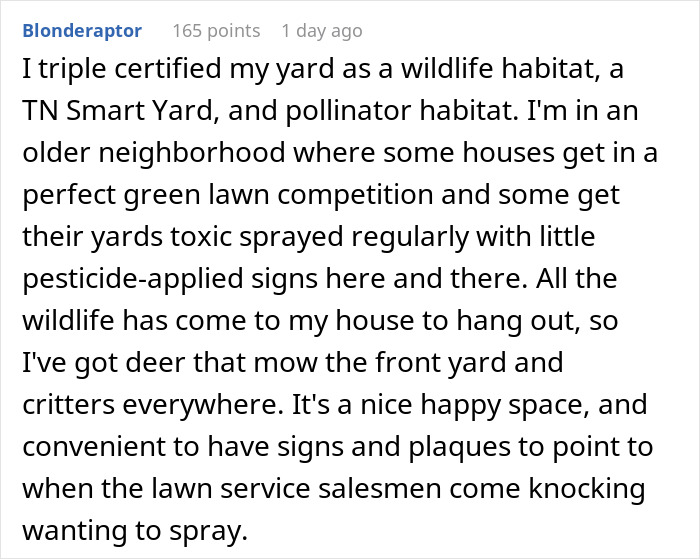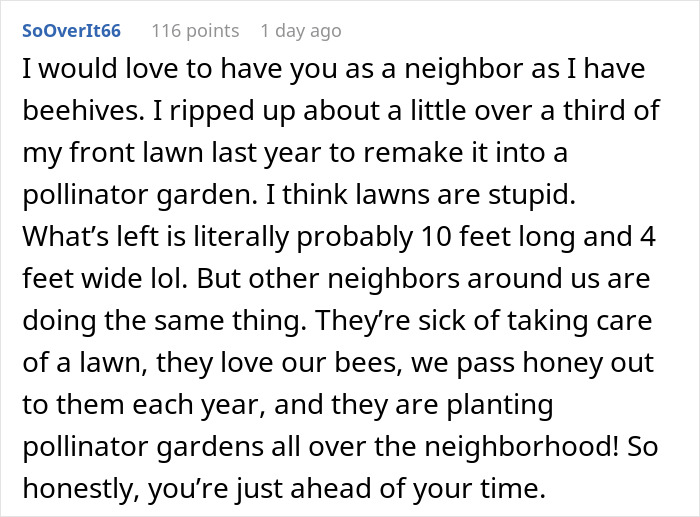Nothing says neighborly love better than a secret complaint about you to the authorities!
Not long ago, ink artist Tawny Fritz found out that she and her husband (together with pretty much everyone else in the area) had been reported to the county by a nosy neighbor for “overgrown weeds” on their property.
However, instead of cutting down their beloved yard, the couple decided to see if there was a legal way to respond — and sure enough, they discovered how to get back at the local busybody.
Some people put a lot of effort and take great pride in keeping their yard just the way they want it

Image credits: unsplash (not the actual photo)
But that doesn’t mean their neighbors are going to appreciate it
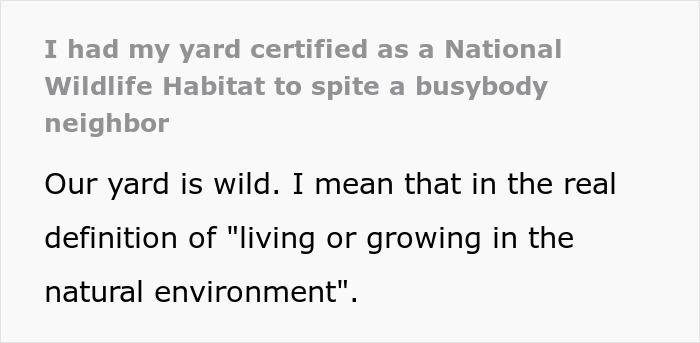






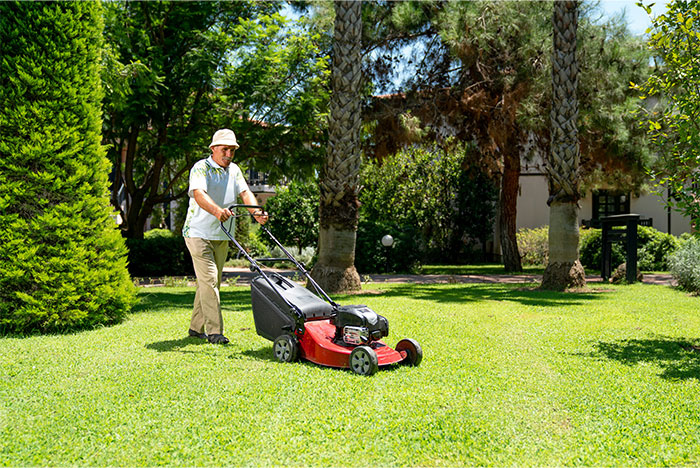
Image credits: unsplash (not the actual photo)
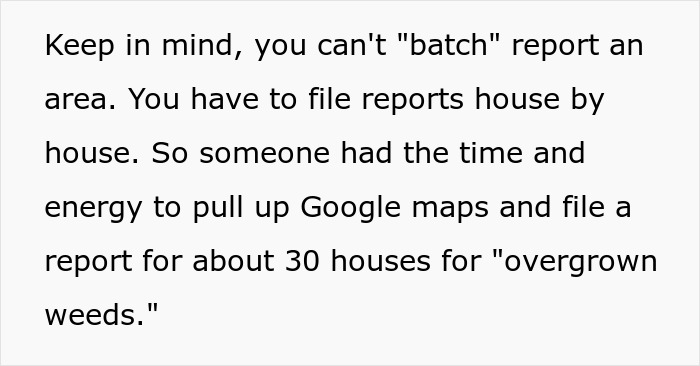
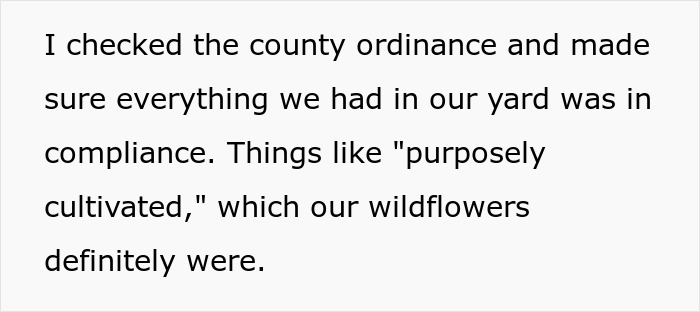




Image credits: tawnyfritz
As annoying as these situations can be, neighborly disputes are somewhat common in today’s world

Image credits: freepik (not the actual photo)
A survey conducted by Talker Research between March 17 and 19 suggests that the idea of neighbors existing as part of a close-knit community is increasingly a thing of fantasy rather than reality for Americans today.
When asked, “How many times in an average week do you socialize with your neighbors?” defined as either talking to or hanging out, 37 percent said they did so “less often than once a week,” while 19 percent said they “never” engaged with a neighbor in this way.
And while this particular case is definitely a memorable one, similar disputes appear to be common, with just 34 percent of those polled claiming they had never had a falling out with a neighbor.
Noise (33 percent) was the most commonly cited reason for such conflicts, ahead of pets (18 percent), etiquette/impoliteness (13 percent), and property boundaries (12 percent).
Parking (11 percent), kids (8 percent), and property damage (7 percent) were also among the most common reasons neighbors argued, according to the poll.
However, not everyone is willing to go so far as to report others to the authorities. For some, leaving a note on, in, or under a neighbor’s door to address an ongoing issue was the preferred choice of communication when it came to resolving a dispute.
The survey discovered that 12 percent of respondents had received a note regarding a dispute with a neighbor.
Garbage and other eyesores can definitely be a problem. Attorney Robert Ruehlman, who specializes in mediation, says there always seems to be one house in a neighborhood where the residents put out random furniture or old appliances with the garbage or never mow the lawn. According to him, these things can affect the ambiance of the neighborhood and even property values.
But this doesn’t appear to be one of those instances.
But people loved that the busybody didn’t get their way

